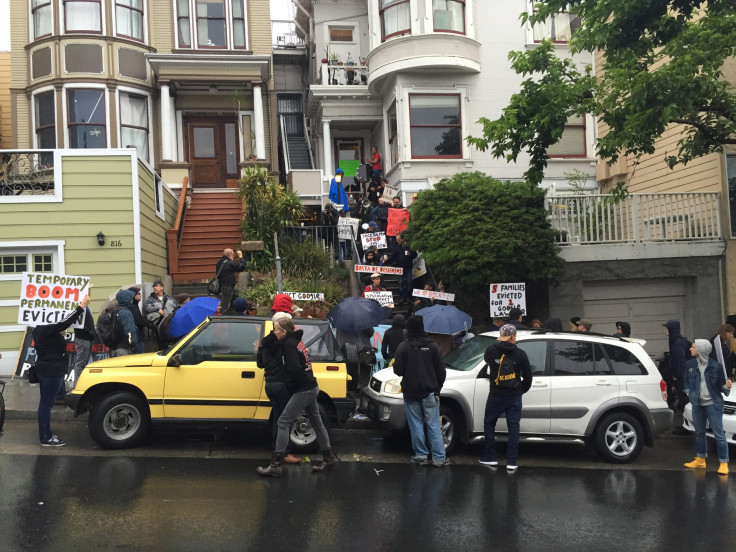More Than 300K LA Households At Risk As California Eviction Ban Set To Expire Mid-August
KEY POINTS
- The ban on evictions imposed in April is scheduled to end Aug. 14
- Some fear there could be “a wave of evictions” if the ban is not extended
- California Chief Justice Tani Cantil-Sakauye says she plans to hold a vote “very soon” to extend the eviction moratorium
The California eviction ban that was imposed in April is scheduled to end Aug. 14, putting more than 300,000 Los Angeles rental households at risk and over 1 million residents in danger of becoming homeless.
Renters and landlords across the state are anxiously waiting for lawmakers to act on the ban that was imposed in April to prevent tenants from being evicted due to hardships resulting from the COVID-19 pandemic.
According to the Orange County Register (OCR), the state has received more than 7.1 million unemployment applications since stay-at-home orders began. The report included a July online survey conducted by the Southern California News Group that showed 82% of tenants who responded reporting they had lost income due to pandemic shutdowns.
California Chief Justice Tani Cantil-Sakauye said she plans to hold a vote “very soon” to extend the eviction moratorium. She also said the governor and state lawmakers are responsible for shaping future tenant protections.
Lawmakers returned to work this week after their shutdown, allowing little time for a resolution before the Aug. 14 eviction ban expires. If nothing is done and the ban is lifted, a wave of evictions could occur, particularly renters in poor communities. If mass-scale evictions come to pass, options include housing people in vacant hotel rooms or refugee camps as a last resort.
The OCR quoted Francisco Duenas, executive director of affordable housing advocate Housing Now! California, who said, “The situation is dire.” Statistics support his assessment.
The most recent Household Pulse Survey from the U.S. Census Bureau reported that more than 14% of the state’s renters (about 1.5 million households) failed to pay their June rent. And 35% of the respondents said they have little or no confidence they will be able to pay the rent when it comes due in August.
California's median monthly gross residential rent in 2017 was $1,447, showed a Census ACS survey. The state's median Annual rent as a fraction of median household income was 24.18%.
Two bills have been proposed by California legislators. SB 1410 by Sen. Anna Caballero allows tenants owing rent to avoid eviction if they reach an “eviction relief agreement” with their property owners. The agreements buy time for the tenant to pay rent while giving tax credits to landlords. An Assembly committee hearing on Aug. 12 will determine the fate of the bill.
The other bill, AB 1436 by Assembly member David Chiu, extends eviction bans possibly until April 1, 2021, plus an additional 12 months to repay late rent for renters who experience COVID-19-related hardships. That bill passed in the Assembly and is now before the Senate Judiciary Committee.
Debra Carlton, vice president for public affairs at the California Apartment Association, spoke for many landlords and took some issue with the warnings of massive evictions without a ban. She said many landlords are working out repayment plans with their renters to avert evictions.
The OCR reported excerpts from an email by Carlton, “At the same time, we are very concerned about small property owners who have not received the rent for months and have told us that their banks will not grant further forbearance. These owners could very well lose their rental housing, and tenants would lose their homes as well.”
Other landlords expressed concerns that some renters who have money with recent government assistance will use the pandemic and the eviction bans as an excuse not to pay.

© Copyright IBTimes 2024. All rights reserved.




















